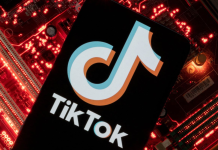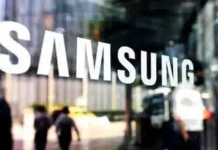
As the sun set on an ongoing night in Rutherfordton, N.C., the creator Beth Revis drove her green S.U.V. into the parking garage of a shut primary school and associated with the structure’s free Wi-Fi. At that point, for the third time since the coronavirus pandemic had grabbed hold, she encouraged a two-hour composing class from her driver’s seat.
Ms. Revis, 38, held an electric lamp to her face with one hand. In the other, she held a selfie stay with her cell phone appended, taking a gander at the gadget to address her understudies.
Getting the web in her general vicinity, around 70 miles west of Charlotte, had consistently been a cerebral pain, Ms. Revis said. “Be that as it may, during the pandemic,” she stated, “it has abandoned a mellow bother to a close to difficulty.”
For Ms. Revis and numerous others the nation over, parking areas have been a computerized life saver during the pandemic. Rather than going through hours in cafés, libraries and bistros, individuals without quick web access at home are sitting in parts close to schools, libraries and stores that have kept their signs on.
In Ohio, Jon Husted, the lieutenant senator, has guided individuals to interface with many philanthropies, libraries and schools over the state. School pioneers in Philadelphia and Sacramento have urged families to utilize free problem areas in library and school parking areas, and in excess of 100 individuals signed on to the Wi-Fi of one of Omaha’s libraries more than three days as of late.
Close to Topeka, Kan., a consistent progression of vehicles currently show up outside the open library, while different vehicles bunch close to associated bookmobiles left in parcels almost a ladies’ remedial office and a manufactured house leave.
“I trust that there is an exercise gained from this,” said Gina Millsap, the CEO of the Topeka and Shawnee County Public Library. “Broadband resembles water and power now, but then it’s despite everything being dealt with like an extravagance.”
The reliance on Wi-Fi in parking areas demonstrates the lengths to which individuals are going to battle the nation’s advanced separation, one of the most stubborn issues in innovation — and one the coronavirus has exacerbated.
One of every four Americans has no fast web access at home, according to the Pew Research Center, either on the grounds that it’s excessively costly or on the grounds that the house is in a country zone with constrained help. Some utilization their cell phone information plans for fast web get to, yet those plans are frequently inadequate to deal with telecommute and distance learning. That makes it harder for some individuals to telecommute during the wellbeing emergency and for their kids to stay aware of their homework away from the study hall.
Join to get an email when we distribute another anecdote about the coronavirus flare-up.
As of late, various government officials, the two Republicans and Democrats, have pushed for enactment to make administration progressively reasonable, particularly for families with young kids. In any case, such administrative pushes have occurred in the past while never crossing the end goal.
“Is disillusioning that we have failed to help a very long time to address the issue,” said Mignon Clyburn, a previous official at the Federal Communications Commission who has since a long time ago squeezed for all the more financing for provincial broadband and endowments for low-salary families. “Presently we are in an emergency, and we are triaging.”
On bureaucratic network access maps, Louis Derry seems to have broadband access, on the grounds that a couple of individuals in his general vicinity of upstate New York have high speeds, characterized by the administration as 25 megabits for every second. In any case, at his home, seven miles from Cornell University, just a much more slow speed is accessible from his supplier — 5 megabits for every second. It isn’t sufficient to help the requirements of his family.
The family alternates driving down to Brookton’s Market, a little nation store with a rock garage, to stop and associate with its free web. Mr. Derry’s little girl, Ellie, a first year recruit at Colorado College, goes practically day by day for her Zoom class meetings and to download large records that she can bring home and work on disconnected. Different vehicles are quite often left close by, drivers composing ceaselessly at their PCs and utilizing the free Wi-Fi. They regularly keep one void spot between them, to follow social separating rules.
In progressively urban regions, the issues are because of moderateness. Mary Anne Mendoza, 26, a doctoral understudy at the University of California, Irvine, shares the most economical network access accessible with her mom and sister in their two-room condo close to the school. At the point when her mom, a M.B.A. competitor, is on a videoconference call, and her sister is online for a college course, the Wi-Fi at home eases back to a slither.
Therefore, Ms. Mendoza, who likewise instructs political theory at California State Polytechnic University, Pomona, has been heading to the parking area of a close by Starbucks to get on the web.
“In my vehicle, I get the protection I need, and the nature of administration is better,” she said.
Anna Haskins, a teacher of humanism at Cornell, said she expected that depending on parking areas was lacking for her understudies, who are taking classes remotely. One understudy, in St. Louis, dropped all electronic correspondence for about fourteen days until he had the option to locate an open Wi-Fi problem area. Another, in country Oklahoma, is traveling a few miles every day to the closest parking garage Wi-Fi spot to do her tests and schoolwork from her vehicle.
“To go out and take a test in a vehicle shows how hard this change is for a few,” Ms. Haskins said. “It’s difficult to assess individuals reasonably. Is their evaluation on a test low since they didn’t contemplate or on the grounds that they didn’t have the best circumstance to take the test?”
In Philadelphia, the significant expense of broadband has left an expected 17 percent of occupants without web at home, as per the Movement Alliance Project, a customer backing gathering. The city’s school region will start formal online classes on May 4, and instructors dread that many lower-salary understudies will be deserted. The locale has passed out 80,000 Chromebooks to its 130,000 understudies, however is worried that occupants won’t have broadband access to take part in classes and take advantage of their new gadgets.
The school region has highlighted free and diminished estimated administrations offered by suppliers like Comcast, however a few guardians have whined of long holds back to get the administration. Authorities have likewise guided families toward free parking garage problem areas around the city if all else fails for understudies, said Monica Lewis, a representative for the school locale.
Using a parking garage for considers has annoyed numerous inhabitants.
“In a city like Philadelphia, you can’t anticipate that individuals should socially remove in a parking area,” said Devren Washington, a senior strategy chief at the Movement Alliance Project. “You can’t anticipate that a few understudies should be sitting in a parking area doing their homework while others are in a vastly improved situation at home.”











